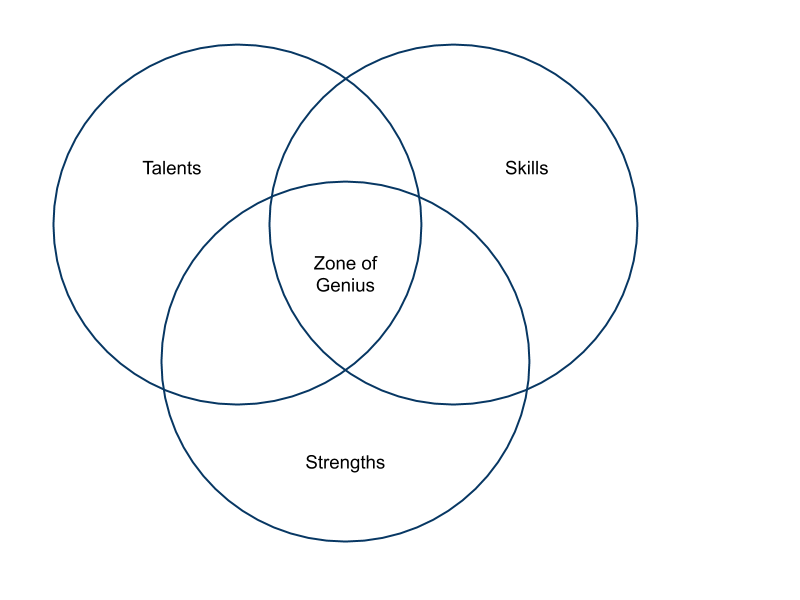Matching people to what needs to get done is an age-old problem in company building. And on a micro level, aligning yourself with the right role is also challenging. What should you delegate? Where should you focus your efforts?
Finding the right role must be an optimization between what you want, what you are good at, and what the organization needs now in order to achieve its goals, which in turn puts it into a path to achieve its mission.
We've found the Zone of Genius framework from The Big Leap by Gay Hendricks to be a useful way of ensuring there’s harmony between jobs and people. It’s pretty straightforward, here’s how it works.
The zones
There are four zones: Zone of Incompetence, Zone of Competence, Zone of Excellence, and Zone of Genius.
People’s performance consists of a mixture of skills, strengths, and talents. Here’s how we define them:
- A strength is anything that gives you energy.
- A talent is an innate ability that can’t be taught (for example, being incredible with numbers).
- A skill is a competency that can be taught (for example, knowing Excel back to front).

Zone of Incompetence
The most obvious misalignment between people and tasks is where there is a lack of talent or skills. In this case, the person should either be retrained, redistributed in the organization, or asked to find a better match outside the company.
Zone of Competence
These are tasks that people are good at, but that other people can do better. Work that falls under this category should be delegated or redistributed to people more suited for it.
Zone of Excellence
It’s less clear when someone is talented and skilled in a particular area but the work doesn’t give them energy. They may be successful in the short term, but over time they will burn out. We call this the Zone of Excellence. It’s important to recognize when people are in this (or even better if they can recognize it) so you can do something about it.
Zone of Genius
When all talents, skills, and strengths are all aligned, we are in our Zone of Genius.
The things in your Zone of Genius are the things that you are uniquely good at in the world, and that you love to do (so much so, that time and space likely disappear when you do them). This is where you can add most value to the world and yourself. This is where you should be driving toward spending most, if not all, of your time. The same goes for your team; they're at their best when they're operating out of this place.
“Some people worry that if each of us operates solely in our Zone of Genius, no one will be available to do the un-fun stuff. This is a false fear. There are many personality types. For every activity that feels un-fun to you, there is someone out there who not only excels at it, but loves it. The key in any organization is for people to be transparent about what their Zone of Genius is, and then map all activities to the right people through Areas of Responsibility (AORs).”
- Matt Mochary, The Great CEO Within
Feedback and the Zone of Genius
Every person is unique. You can’t turn weaknesses into strengths, or create talent where there is none. These things are innate. All you can teach is skills and self-awareness, so direct your feedback there. Focus on doubling down on someone’s existing Zone of Genius, or shift them into a role better aligned with their Zone of Genius.